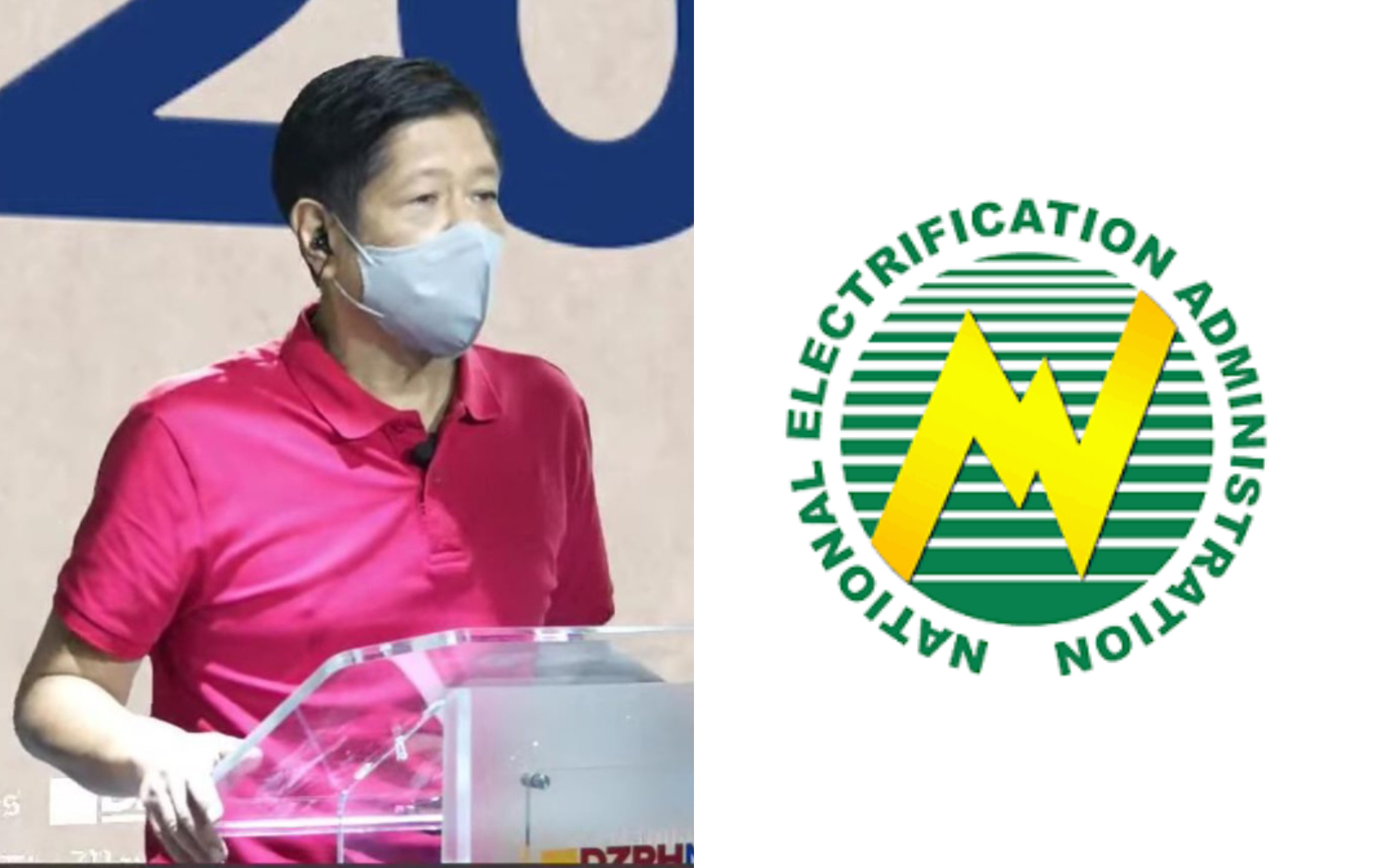NEA decries Marcos Jr.’s view of ECs
- January 31, 2022
- 0

The National Electrification Administration (NEA) said it is saddened over former senator presidential aspirant Ferdinand “Bongbong” Marcos Jr.’s statement calling electric cooperatives (ECs) “inefficient” parts in the chain of progress.
“For more than five decades, the ECs play an important role in ushering economic activities particularly in the rural areas through the implementation of the Rural Electrification Program (REP) which his father, the late former President Ferdinand E. Marcos has started and signed into law,” NEA said in a statement.
“Doon nagkakaproblema sa mga EC na inefficient at lubog sa utang [at ‘yung] kanilang service, ‘yung pag-service ng kanilang utang, pag-service ng kanilang loans, pinapasa sa consumer, kaya tumataas [ang presyo ng kuryente],” Marcos Jr. said in an interview with DZRH on January 25.
NEA was established under Marcos Sr. when he signed Republic Act 6038 in August 1969, with the objective of totally electrifying the country.
“These laws gave primacy to ECs, in collaboration with the NEA, as a platform of development. They are non-stock, non-profit entities engaged in supplying electricity in franchised areas. ECs are mandated to do missionary electrification, to provide electricity service even in the remotest parts of the country for every Filipino to enjoy the benefit,” NEA added.
The delivery of power is divided into three parts: 1) generation, which is taken care of by the power plants, 2) transmission, wherein the National Grid Corporation of the Philippines (NGCP) transfers electricity to their substations from the plants, and 3) distribution of power from NGCP substations to homes and businesses. ECs specifically serve as power distributors in rural areas.
NEA disclosed that there are seven out of 121 ECs that are considered “ailing,” but the agency believes that these will be able to perform better in the coming years.
While the seven ECs not performing at par due to geographical terrain, right of way problems, and other matters, these NEA says they “have shown resiliency and optimism to take on these challenges.”
NEA is hopeful that Marcos Jr. would come to a perspective that ECs are “vital instruments for the economic growth and development the Philippines hope to achieve.”
Marcos Jr. earlier said he considers nuclear power a clean and price-efficient source of energy.
Marcos Jr. screen grab from DZRH YouTube page.